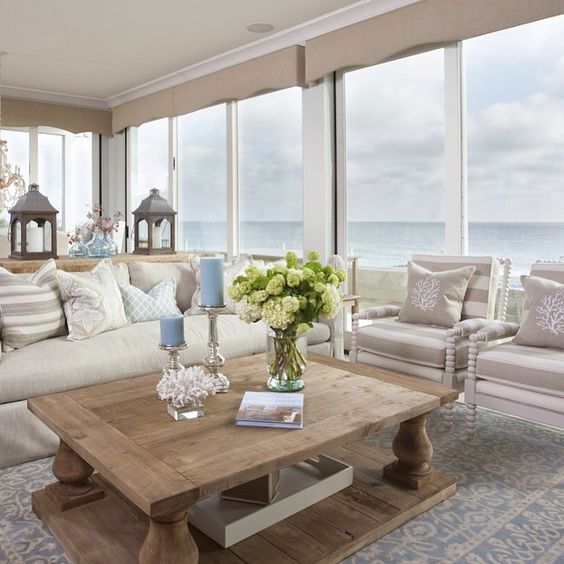
Sometimes, it only takes moving a few things here and there to make a house look better. The stuff we already have in our home, in order for them to work together and give the space a great flow, means furniture needs to be put in its best position. This is true for everyday life and for staging your home for sale.

Unfortunately, not all of us have the artistic eye to enhance the beauty of our home by just moving and grouping furniture and accents, if we did, we wouldn’t have a job!
Knowing how to arrange furniture, work with colour and place the right accessories can boost the overall appeal of your living space.

We’ve listed easy and practical arrangement tips for the living room.
Below you will find the furniture arranging basics and furniture sizes and placements.
Let’s start with the basics.
Living Room Basics
When arranging furniture in your living room, always remember to:
- Establish a focal point.It could be a decorated wall, a centerpiece a window, or a fireplace where you can arrange and match the furniture around it.
- Create a conversation area. It will be awkward for guests if they will need have to strain their necks and shout in order to be understood by one another. If you have a large living room, instead of spacing out the furniture and create a big gap between seats, create different conversation groupings instead.
- Don’t forget about traffic flow. Make sure that people have enough room for walking so they won’t trip or graze each other whenever in a hurry.
- Pull furniture away from the walls. One of the biggest mistakes that people do, is to leave their furniture touching the walls. If the pieces are closer together, they create a more intimate setting.

Furniture Placement and Sizes Guide
When it comes to interior design, size matters. Look at the size of your area first and make sure that the furniture you put it in will complement the space.
Side tables.
People usually think that side tables are not important… but they are actually are. It is a common practice to have side tables at both ends of a sofa. But, if you only have a limited space, a coffee table is much advisable. For the height, always remember that side tables, should as high as the arm chair height of the nearest sofa or chair.

Coffee tables.
A coffee table is a must have piece because it is practical and can serve many purposes. The height of a coffee table should be slightly lower than sofa and chairs, but not too low to the point that the guests will feel uncomfortable putting down their wine glass or a cup of coffee.

Rug.
The secret to making rugs work is to go for a bigger one. An area rug that is too small will stunt your vision of the seating area. However, a big rug can define and make the seating area bigger and more inviting. But don’t go too big (like wall-to-wall) as that can cut off the space too and chop the room in half, you should see some hardwood flooring around the rug

Sofa and chairs.
Consider the amount of space you have before buying new furniture. There is no small or big furniture, the sizes should depend on the amount of space that your living room has. What you can do is create a simple sketch or a basic floor plan with measurements to see how much stuff you can put in there and to really capture personal style, try not to purchase a matching set with sofa and chairs. Find some great chairs that compliment the space and are of proper size and scale (some visual interest too)

Sometimes all a room needs is a few small changes,




Mike Masonbridge
Great points there, thanks. And here is the relevant article, maybe someone will find it useful too https://virtual-staging.archicgi.com/virtual-furniture-arrangement-5-benefits/
31 . 07 . 2020